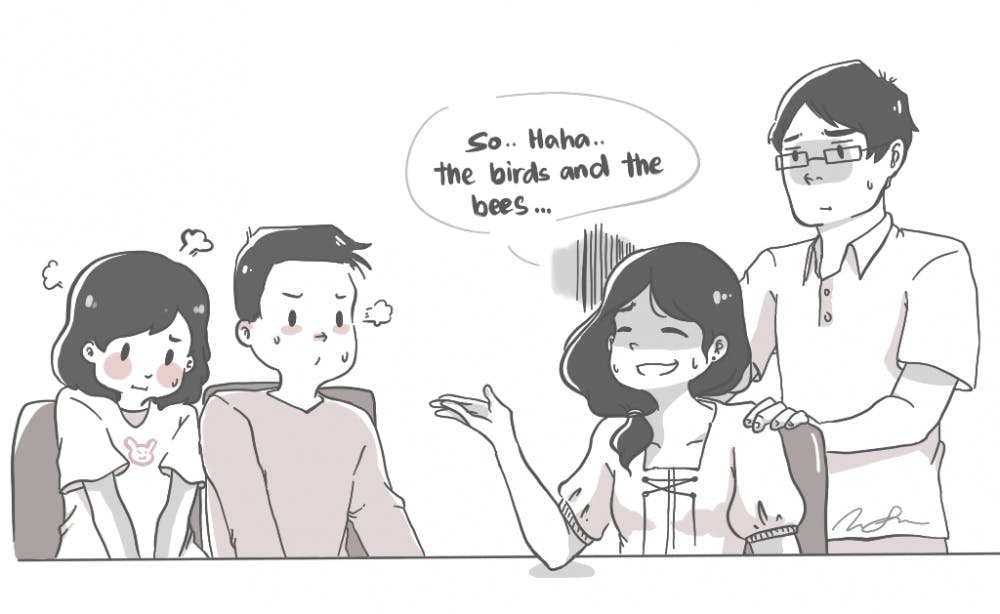When Sankara Daly told his dad he wasn’t sexually active, he was ready for an open discussion about sex. Instead, his father handed him a book.
Parents typically don’t have a calendar with a date circled for the talk, but many parents anxiously anticipate this interaction. This conversation varies among
“[Most] parents say it is their responsibility to educate their children about sexual health topics, but less than [half] actually try to broach these subjects with their children,” Rintamaki said. “So many people wish they were more capable with having this type of conversation with their kids, but often feel unprepared when those moments arise.”
Daly, a senior computer science major, agrees with Rintamaki. Daly said his father should have been more open about the topic instead of giving him a book to read on it.
“He could have explained his life experiences with me because most of what I found out was from my own research and experimenting with my girlfriend,” Daly said. “As I got older, he started to share more of his life experiences, but now it’s like I’m receiving my sex talk later in life after it’s not needed.”
Sex therapist Samantha Heuwagen said parents may be fearful or paranoid of their children’s sexual activity, which can lead to ambiguous answers about sex topics. Heuwagen argues learning about safe sex at an earlier age correlates with higher levels of maturity.
“Having comprehensive sex education that starts in preschool or kindergarten develops a sense of comfortability for these children to grow up and talk about sex,” Heuwagen said. “With these programs, these children are going to grow up more mature about the choices they make regarding sex and that’s a positive thing.”
In countries like the Netherlands, comprehensive sex education is taught as early as the age of four, according to PBS. In the United States, all states are involved in sex education, however, only 20 states require the material to be accurate, according to National Conference of State Legislatures.
Currently, the New York State Senate and Assembly
When
“I didn’t know any of that stuff you
Comprehensive sex education isn’t just teaching about sexual intercourse. Sexologist Lanae St. John said this type of education can teach children about components of a healthy relationship and the value of consent.
“Comprehensive sex education is not just what a penis does with a vagina,” St. John said. “I think it’s super important to talk about love, relationships
Like Daly, some UB students said they weren’t given a proper sex talk and learned about sex on their own. St. John, however, encourages parents to talk about sex with their children and advises them to have continuous conversations.
“We have a level of responsibility. If we’re not going to acknowledge the topic, they’re going to find out in other ways …,” St. John said. “You don’t have to encourage them to have sex, you just have to acknowledge it. The best we can do is to validate their experiences and make sure they’re safe.”
For his own kids, Daly plans to take a different approach than his father. He said he wants to comfortably talk about sex with his kids.
“I want to be able to constantly talk about sex and make it seem that it’s not something you need to worry about, but something that is meant to be enjoyed with two people who like each other,” Daly said.
Wanly Chen is an assistant features editor and can be reached at wanly.chen@ubspectrum.com.





